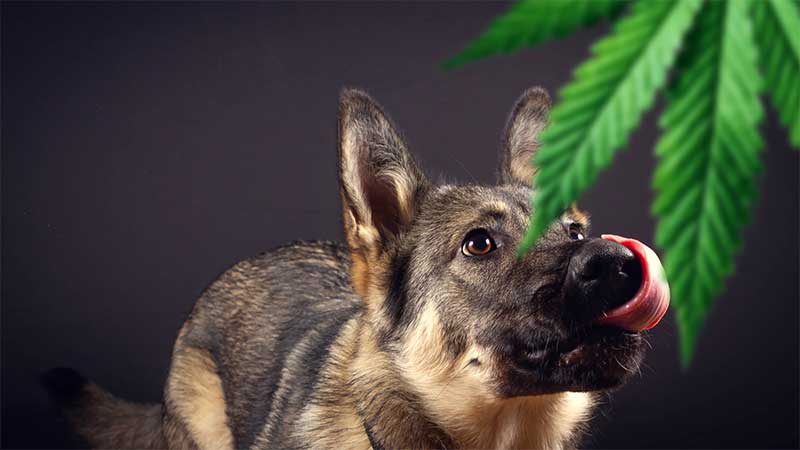No products in the cart.
Pet Safety Tips for THC Leave a comment
Pet Safety Tips for THC. To diagnose THC exposure, your veterinarian will need to get an accurate account of what happened. Some pet parents may feel nervous, embarrassed, or even guilty about the situation. But it’s important that you share all of the facts with your veterinarian so your pet can get the best care possible. Your veterinarian may also conduct a test that can detect THC in the urine to confirm the diagnosis.
Treatment for THC exposure is focused on supportive care. For instance, the pet may need fluids to keep them hydrated or medications to regulate their heart rate or body temperature. If they’re disoriented and unstable, they may need close supervision to make sure they don’t hurt themselves.
Your veterinarian may recommend intravenous lipid infusion therapy, which can help THC pass through your pet’s body quicker. Other possible treatments include inducing vomiting, pumping the pet’s stomach, or administering activated charcoal, which helps prevent toxins from being absorbed into the body.
Pet Safety Tips for THC
These tips can help you keep your pet safe from THC poisoning:
- Treat cannabis and products with THC as medications and store them safely out of paw’s reach. A high medicine cabinet or locked box can be good choices for storage.
- Remember that edibles with THC may be particularly tempting for your pet. Avoid leaving them out on tables, counters, or anywhere else your curious pet might be able to get at them.
- Keep your pet out of rooms where cannabis is being smoked. Wait until the air is fully clear before allowing your pet back in. While the jury is still out on how cannabis smoke affects animals, many studies highlight the danger of secondhand smoke to our pets, including eye irritation and increases in different types of cancers.
If your pet is exposed to THC, remember not to panic and seek medical help as soon as you can to help your pet recover safely.
Pet safety is crucial when it comes to substances like THC (tetrahydrocannabinol), which is the psychoactive compound found in marijuana. THC can have harmful effects on pets, so it’s essential to take precautions to keep your furry friends safe. Here are some pet safety tips for THC:
- Keep THC products out of reach: Ensure that any THC-containing products, such as marijuana edibles, plants, or paraphernalia, are stored securely and out of your pet’s reach. Pets are curious and may ingest or chew on these items if they’re accessible.
- Be cautious with edibles: THC-infused edibles, like brownies or gummies, can be especially appealing to pets due to their smell and taste. Be extra cautious when storing and consuming these products.
- Educate yourself: Understand the signs of THC toxicity in pets. Common symptoms include lethargy, incoordination, dilated pupils, drooling, vomiting, diarrhea, and in severe cases, seizures or coma. If you suspect your pet has ingested THC, contact a veterinarian immediately.
- Secure garbage bins: Dispose of THC-related waste securely, as pets may rummage through the trash and find remnants of edibles or other THC-containing materials.
- Keep your pet’s environment clean: Regularly clean your living space to remove any spilled or dropped THC products.
- Use childproof containers: Store THC products in childproof containers to reduce the chances of your pet accessing them.
- Be cautious at social gatherings: If you have guests over who use THC, make sure they are aware of the risks to pets. Ask them to keep their items secure and avoid sharing THC-containing products with your pet.
- Know the THC content: Different THC products have varying concentrations of THC. Be aware of the potency and potential risks associated with the products you have in your home.
- Don’t use THC products on your pet: While there is a growing market for CBD products for pets, it’s essential not to use THC products on your pet without guidance from a veterinarian. THC can have adverse effects on animals.
- Seek veterinary care: If you suspect your pet has ingested THC, contact a veterinarian immediately. They can provide guidance on how to proceed and may induce vomiting or administer other treatments to mitigate potential harm.
Remember that THC can affect pets differently than humans, and even a small amount can be harmful to them. Prevention is key to keeping your pet safe from THC exposure. If you have any concerns about your pet’s health, consult with a veterinarian.
Buy Products NOW >> Click Here















